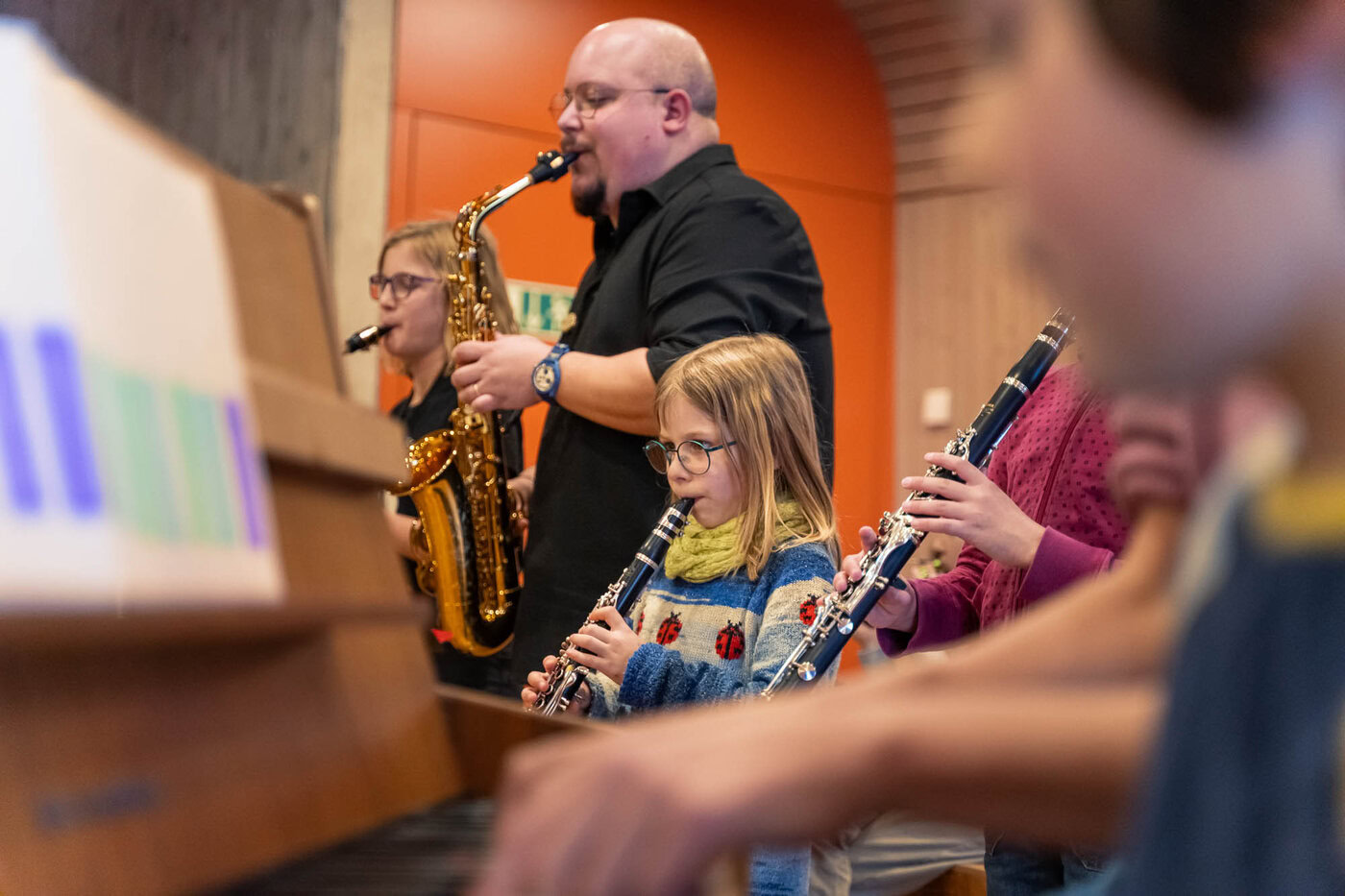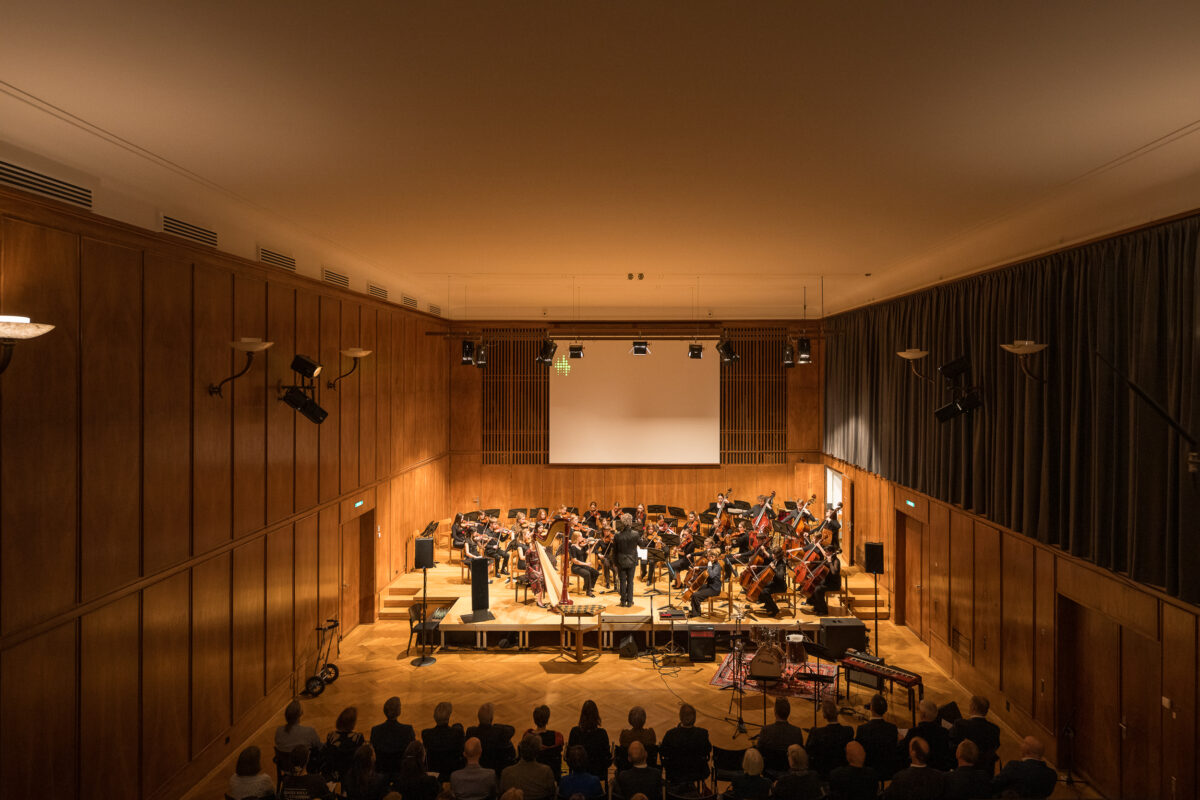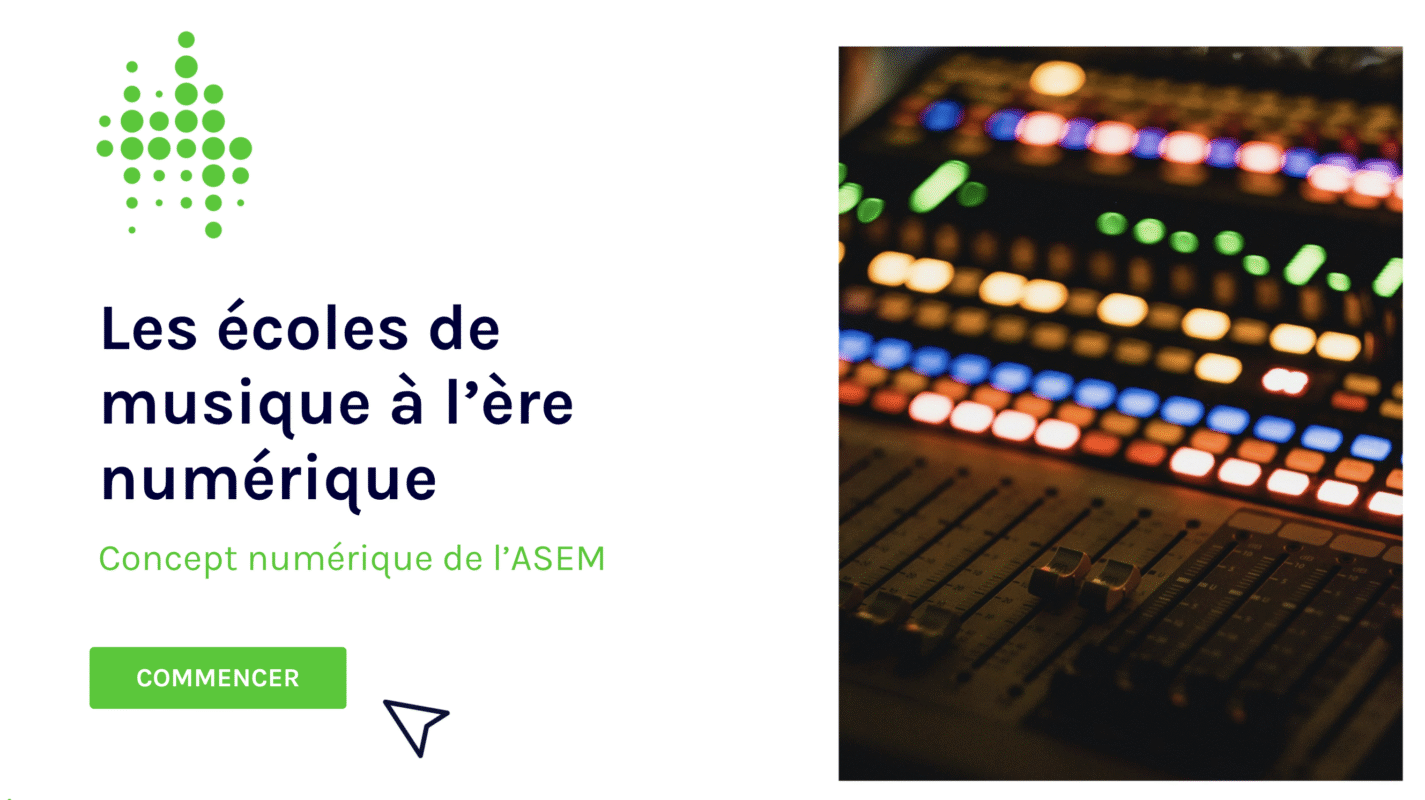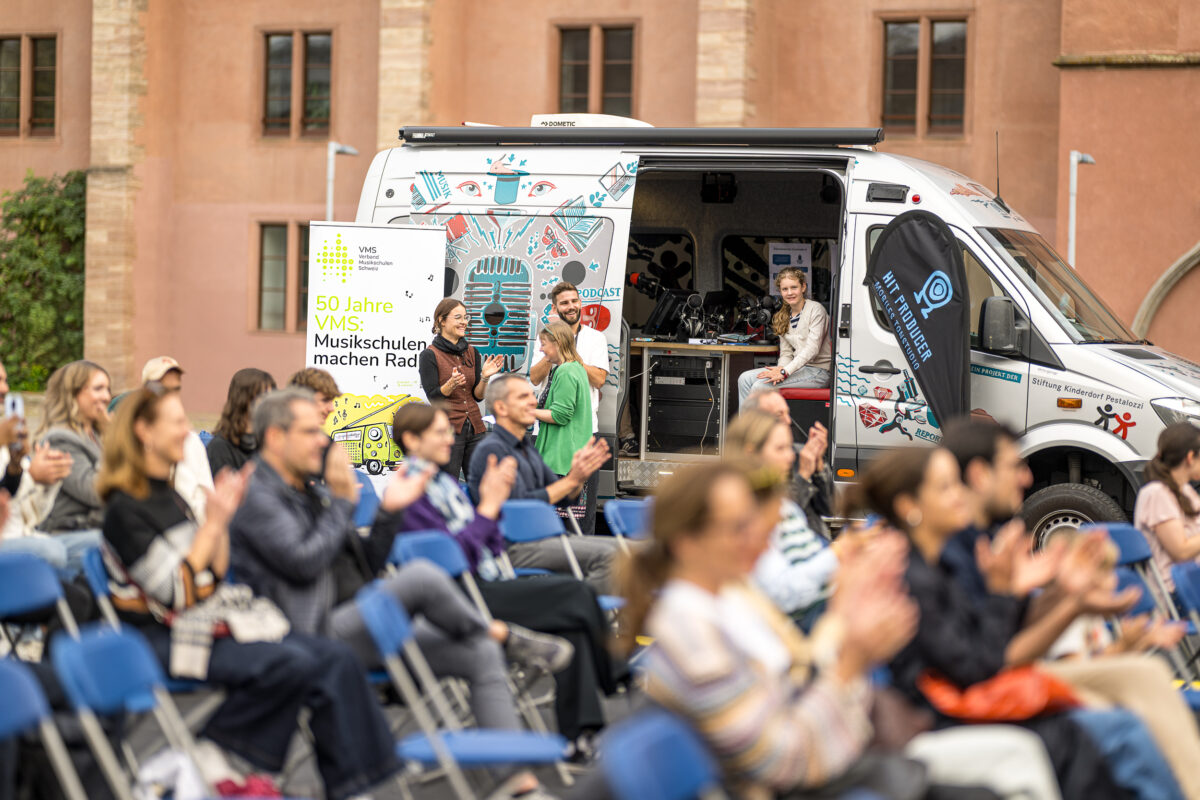Why we no longer talk about inclusion, but about music
Oberemmental Music School and Langnau School of Special Education offer a joint music workshop. The "Happy Fridays" are an opportunity for mutual learning. Fabio da Silva, saxophone teacher and member of the school management, and Joëlle Bieri, special education teacher, give their impressions.

Fabio da Silva has long aspired to bring music to people who don't have easy access to it. He has already led composition workshops in prisons, and set to music biographies of dependent and very elderly people - so it was only natural that he should also explore new avenues as a music teacher. So he knocked on the door of the Heilpädagogischen Schule (HPS), where he found a committed project partner in Joëlle Bieri. As a former primary school teacher, she had a wealth of experience in teaching music. Since summer 2022, students from the music school and the HPS have been meeting to study songs such as "Believer" by Imagine Dragons or "079" by Lo & Leduc.
Learning real instruments as a band
At first, these "Happy Fridays" focused on percussion, on the instruments of music school students (saxophone and clarinet) and on the skoog (an easy-to-use cube-shaped instrument specially developed for inclusive music). But very quickly, several students expressed a desire to discover acoustic instruments too.
"There are some real talents among them," Joëlle Bieri emphasizes. Meanwhile, all participating students also play an instrument - djembe, piano, electric guitar, bass guitar, saxophone, clarinet and percussion - in ensembles of varying geometry. They are supported by a seven-member team of music school teachers and HPS staff. The workshops generally begin with an improvisation, which serves as a warm-up for the students and enables them to practise ensemble playing. The group then works on a piece, developing the melody, rhythm and accompaniment.
A set like any other
"We don't differentiate between music school and HPS children, so we no longer use the term 'inclusion'," explains Fabio da Silva. Happy Fridays are just like any other music school ensemble". A view shared by special needs teacher Joëlle Bieri: "The question of who goes to which school is not decisive. The children identify with the project, they've become a team". The Happy Fridays concerts are well attended, and show the public that this cohabitation comes naturally.
Meeting others
The project is generating a lot of interest within the music school. However, it can also be a source of uncertainty, especially for teachers with no experience of working with children with disabilities. "I think you simply have to be willing to go out and meet others," Joëlle Bieri points out. "You have to get to know each other reciprocally, try to look for students where they are at that moment and allow them to discover their talents and the pleasure of making music." Collaboration within the animation team testifies to a strong commitment based on mutual esteem and support. Fabio da Silva sees Happy Fridays as an enrichment alongside the individual teaching of his saxophone students. Today, a number of HPS students take part in Happy Fridays classes. Joëlle Bieri and Fabio da Silva are delighted with this initiative.
1er ASEM Best Practices Competition Award
On the financial side, the two project partners have found a good solution: they share the costs equally. And each institution assumes the personnel costs of its own employees. To ensure that the music school's pupils, all of whom already take individual lessons, can participate in the ensemble classes free of charge, those in charge of the project regularly seek various funding opportunities in the form of foundations and other contributions to the project. Both the music school and the SPH plan to develop and expand the project. "It would be great if it could encourage other music schools to launch this type of project," notes Fabio da Silva. Obtaining the 1er prize in the ASEM best practice competition could be a first step in this direction. Congratulations!








